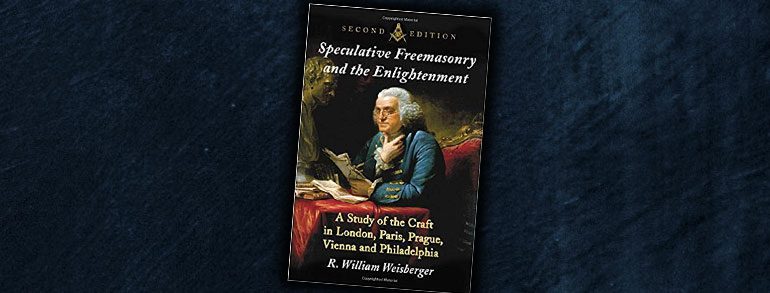A review by Doug Kaylor
Brother R. William Weisberger, Ph.D., is a member of Steubenville Lodge, No. 45, and a retired Professor of History and Sociology. He is also a pioneer in modern masonic scholarship, one of the first of a new generation of scholars to apply modern historiography to the fraternity. His 1980 dissertation became the basis of his book, Speculative Freemasonry and the Enlightenment. Now, after thirty-seven years, Brother Weisberger has published a new, second edition, with added material. It is available in both paper and electronic editions.
The origins of Freemasonry are a source of endless speculation, and depending on the school of thought, it is described as a society distinguished by fun and fellowship, philosophy, social action, liberal arts, moral education, or esoteric knowledge. Some argue that it is basically a dinner club; others that its lessons are ancient, complex, and layered with hidden meanings.
Brother Weisberger is a historian of the Enlightenment. In this work, he studies well-known Lodges in London, Paris, Prague, and Vienna as vehicles of learning, civil religion, political equality, and societal action. In the second edition, he added chapters on Benjamin Franklin and Jewish civic rights in Philadelphia. His presentation is measured, reasoned, and supported by a scholarly research.
How one interprets this book will depend largely on the predisposed beliefs that the reader brings with him. Those looking for proof that Masonic Lodges were one thing or another – whether social clubs, secret societies, or something in between will be disappointed. But those who approach this work with an open mind will find it a useful and thought-provoking exploration of our founding years and worth their time and attention. I recommend it to those who are willing follow the scholarship wherever it leads. They will be rewarded with a more complete and nuanced understanding of our founders, the influences that shaped our Lodges, and the ideas and ideals that distinguish us as a society of friends and brothers.

